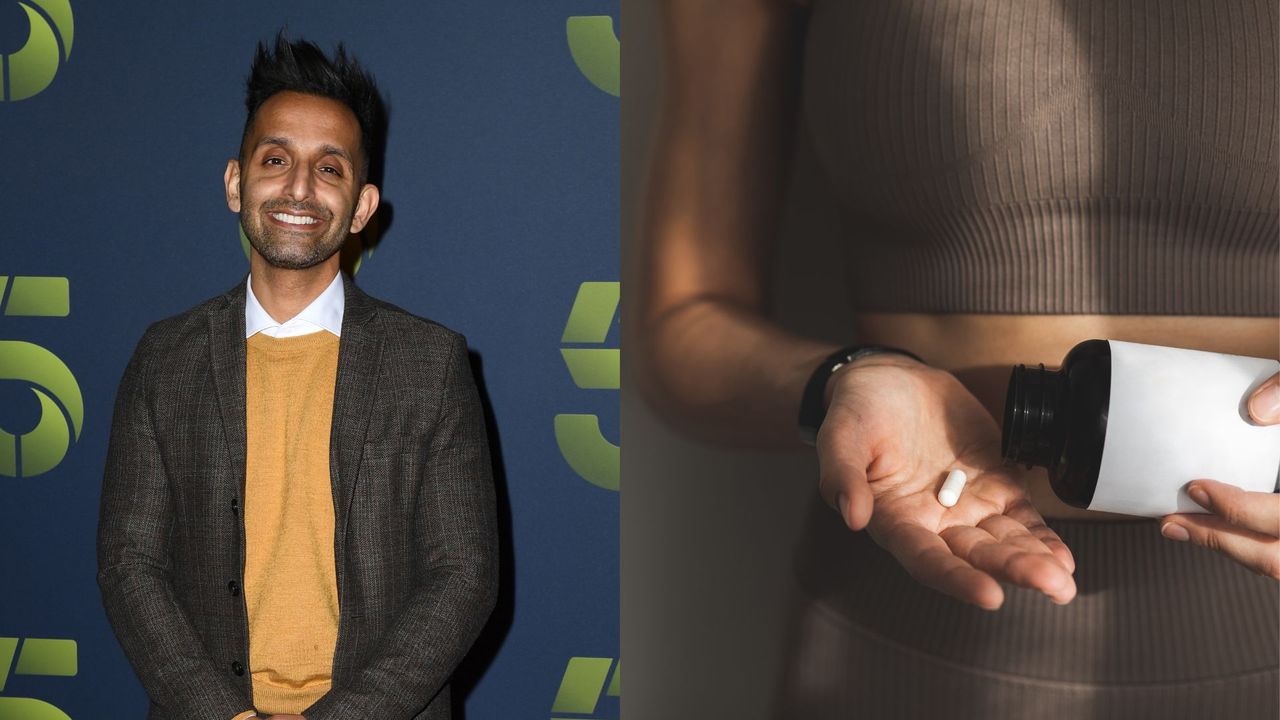
The noise around supplements can feel deafening at times. It can be hard to sort fact from fad, with so many companies selling the dream of better health and longevity through their products.
The one thing everyone agrees on, however, is the benefits of creatine for women, especially as we get older. "It's a powerful ally for staying strong, independent, and sharp," says Dr Amir Khan, a GP, frequent guest on ITV's This Morning and Lorraine, and woman&home's resident doctor.
"From our mid-30s, 40s onwards, we start to lose muscle mass and strength. It's called sarcopedia. That's one of the reasons people might start to feel weaker and have aches and pains, and particularly as we get older still, we're at a higher risk of falls," he says.
"Strength training is one of the best ways to fight this, and creatine may give that process an extra boost," he says. "The evidence shows that when you combine it with strength training, you can improve muscle strength, power, and even muscle mass, and that's not just in athletes. That's in older adults, too."
From our mid-30s, we can lose up to 8% of our muscle mass every decade, and this becomes more pronounced with the impact of menopause. It's why strength training has been lauded as one of the best exercises for longevity for midlife women.
But as well as all the physical benefits, there's research highlighting the benefits of creatine for the brain, Dr Khan says. "It might support memory, reduce mental fatigue, and even help conditions like mild cognitive impairment," he says. "The evidence isn’t as strong as it is for muscles, but it's promising."
It also works to help those who are frail or "recovering from illness" and may even have "potential benefits on mood disorders", he says, but it's still "really early" days on these discoveries, too.
Creatine isn't a "magic pill or powder", but it does need to be taken as a supplement in later life, the doctor says. "As we age, the combination of lower muscle mass, lower dietary intake, especially in vegetarians, and reduced efficiency means we may need some extra creatine."
The amino acids that make up creatine are found naturally in the body, "mainly in the liver, kidneys, and pancreas", we don't make enough to protect ageing muscles.
Like any other lifestyle change, be sure to check with your doctor or pharmacist before incorporating any new supplement into your diet - especially if you have a history of kidney or liver disease.
Do you have to do strength training to take creatine?
Yes, "the biggest benefits come when you combine [creatine] with regular strength training," he says. "Squats, lunges, lifting weights, resistance bands, all of those things anyone can do."
In response to a viewer comment, he adds: "We are still building evidence for taking it without [this exercise]."
Without the exercise, you don't have the pressure on the muscles that helps creatine boost muscle mass and strength.
"If you want to age stronger, protect your muscles, and maybe even protect your brain, don't just think cardio. Think strength training. And if you don't think you're getting enough protein in your diet to help the building blocks of creatine, you may need a supplement, but that's an individual choice," says Dr Khan.







